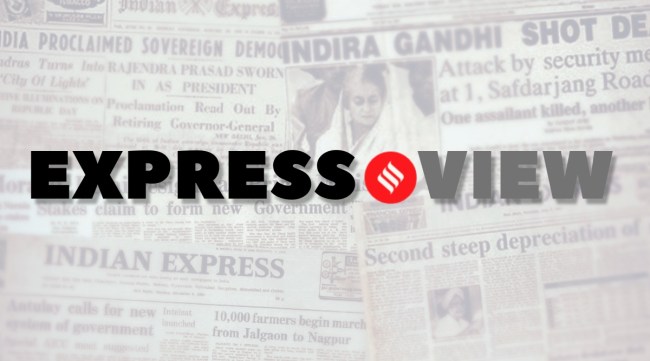Opinion Express View on NATO and the Russia-Ukraine conflict: No end in sight
Russia's stated reason for invading Ukraine was that its security is compromised by having a NATO country at its border. Now, with Finland having joined the alliance and Sweden perhaps next in line, it is clear that its action was counterproductive
 Turkey, the proverbial bad boy of NATO, opposes Sweden's entry because the latter, in Ankara's view, has allowed “terrorist” groups, especially Kurdish organisations, to operate from and in its territory.
Turkey, the proverbial bad boy of NATO, opposes Sweden's entry because the latter, in Ankara's view, has allowed “terrorist” groups, especially Kurdish organisations, to operate from and in its territory. As the conflict in Ukraine reaches the 500-day mark, a series of developments highlight that the geopolitical churn unleashed by Russia’s invasion of its neighbour is far from finding an equilibrium. The conflict has neither erased the differences within NATO nor completely isolated Russia. At the same time, Russia is certainly less secure than it was before the war. On Wednesday, Turkey reiterated its opposition to Sweden joining NATO — Recep Erdogan’s narrow election win has done nothing to soften Ankara’s position. On the same day, Belarus President Aleksandr Lukashenko confirmed that his country had received several nuclear weapons from Russia, including “bombs three times more powerful than those [dropped on] Hiroshima and Nagasaki”. Belarus, and Lukashenko in particular, have stood steadfastly with Putin during the invasion and the country has served as a launchpad for Moscow’s military.
Turkey, the proverbial bad boy of NATO, opposes Sweden’s entry because the latter, in Ankara’s view, has allowed “terrorist” groups, especially Kurdish organisations, to operate from and in its territory. But the fact remains that NATO expansion is unlikely to push Russia to end the conflict – it will likely do the opposite. Thus far, NATO has done well to avoid becoming directly involved in the war. Despite the support in terms of money and weapons, there are certain red lines which the US-led alliance has not crossed: Since the beginning of this year, Ukraine President Volodymyr Zelenskyy has been demanding that the EU and/or NATO countries provide fighter aircraft to Ukraine — they haven’t. Yet, it is important to keep in mind that the dangers of the conflict becoming larger and more devastating are greater as the war continues.
Russia’s stated reason for invading Ukraine was that its security is compromised by having a NATO country at its border. Now, with Finland having joined the alliance and Sweden perhaps next in line, it is clear that its action was counterproductive. It has also pushed Moscow into playing second-fiddle to Beijing. At the same time, a further expansion of the alliance could plunge the world deeper into a new Cold War. Earlier this month, NATO Secretary General Jens Stoltenberg told The Indian Express that, “… it’s important to have partners also outside their territory… I think there is a potential in developing more contacts and close relationships with India”. Recently, there have been reports of a NATO office in Tokyo. New Delhi, for its part, has been clear about not joining any military alliance: “NATO template doesn’t apply to India,” External Affairs Minister S Jaishankar said earlier this month. The aim for all global actors must now be to bring Russia and Ukraine to the negotiating table.






